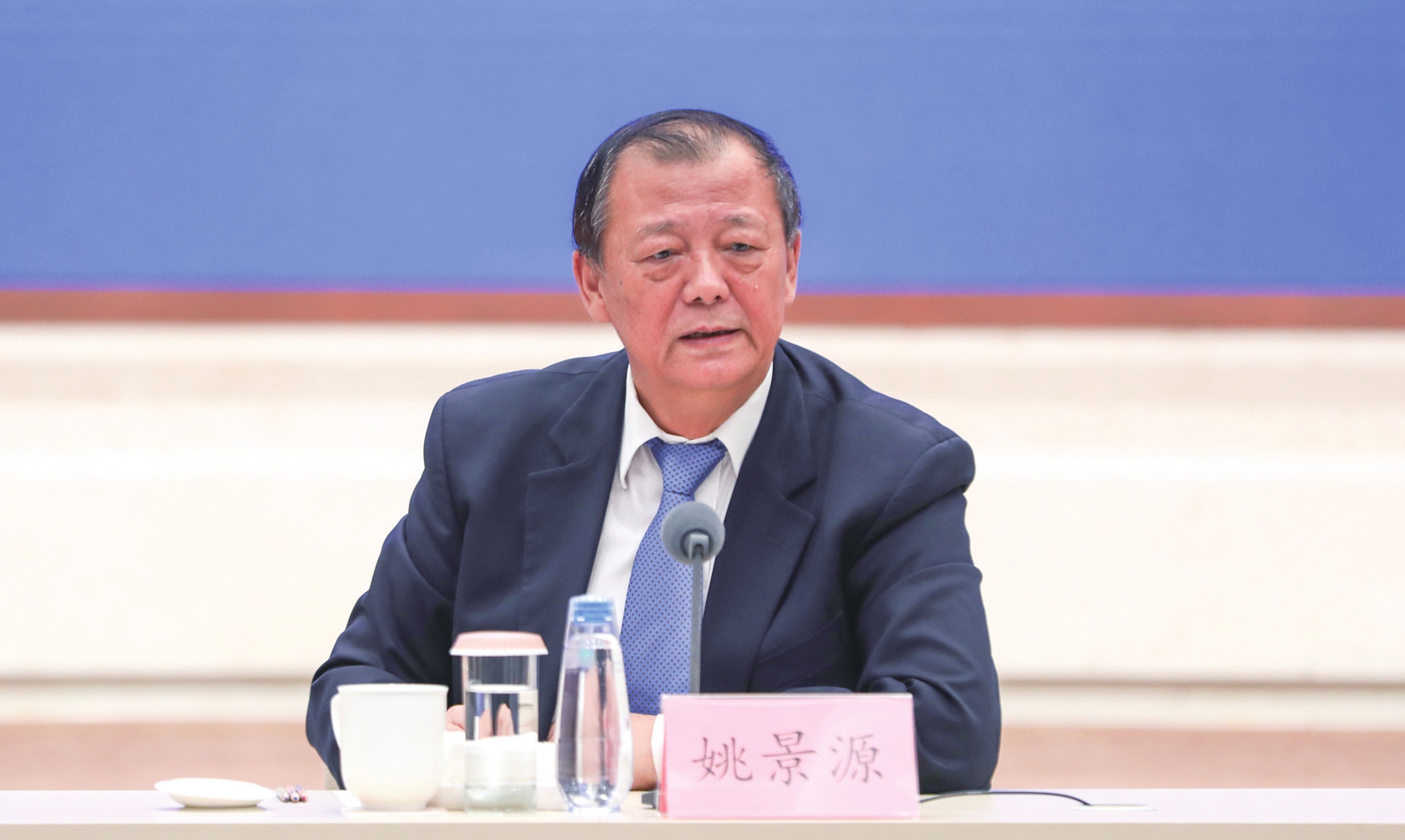

A city view of Guangzhou in South China's Guangdong Province Photo: VCG

Yao Jingyuan Photo: VCG
Editor's Note: The annual Central Economic Work Conference was held in Beijing from Monday to Tuesday as Chinese leaders decided priorities for the economic work in 2024, the Xinhua News Agency reported. Despite facing numerous challenges, China's economy has achieved a stable growth in 2023 and is expected to surpass the growth target set at the beginning of the year, demonstrating remarkable resilience and a strong foundation. In an interview with the Global Times, senior economist Yao Jingyuan emphasized the importance of going beyond surface-level data and recognizing the positive transformation that has taken place within the economy. Looking ahead to 2024, it is clear that China's economic growth is well-positioned to achieve a stable growth by cautiously and foresightfully addressing these challenges.
As 2023 draws to an end, it is undeniable that China's economy has achieved success in meeting the main targets set at the beginning of the year. However, when analyzing the Chinese economy, it is more important to delve deeper than just the surface-level data. While it is certain that China's GDP growth rate will exceed 5 percent, it is crucial to recognize the significant transformation that has occurred within the economy.
To begin with, in the process of achieving overall economic growth, it is evident that the structure of the Chinese economy is being optimized. When examining the three major industries - primary, secondary and tertiary - it becomes apparent that consumption has emerged as a significant driving force, which aligns with the preset objective of transforming the growth model. Consumption contributed 83.2 percent to China's GDP growth in the first three quarters of this year.
Another important aspect to consider is the remarkable development in the high-tech sector. The growth rate of high-tech industries in China's industrial sector is more than double that of the overall industrial growth rate. China has witnessed rapid advancements in new materials, new technologies and new energy areas.
Moreover, green growth and sustainable development have been key focuses of China's development this year, and we have made significant achievements in this regard. China's economic development is no longer at the expense of the environment, as we prioritize a harmonious development between humans and nature.
When looking at the Chinese economy, it is important to consider its contribution to global economic growth. This year, China's contribution to global economic growth is expected to exceed 30 percent, indicating that the Chinese economy remains a crucial engine for global growth. It is worth noting that China's contribution was also around 30 percent last year, demonstrating the stability and resilience of the Chinese economy.
China's post-COVID-19 economic recovery is characterized by undulating progress sometimes with twists and turns. It is true that China's economy is currently facing multiple challenges, which encompass a complex interplay of structural and cyclical factors, with both long-term and short-term issues coexisting and external and internal factors being intricately intertwined.
For instance, the real estate sector is experiencing lower-than-expected investment and sales. As multiple efforts are being made to address the hidden risks in the sector, the current situation in the real estate market is an unavoidable process that involves some temporary challenges.
From this perspective, the real estate sector is undergoing a transformative phase. However, effective implementation of government policies will be crucial in guiding the real estate sector toward a healthy and sustainable development.
Firstly, we should provide assistance to real estate developers in overcoming challenges related to housing supply. This includes addressing funding issues, ensuring the timely completion of projects, and facilitating further development. Secondly, we need to focus on stimulating demand through targeted policies. It is important to encourage and meet the needs for both essential and improvement-oriented housing. Additionally, we should enhance the construction of affordable housing, aiming for a balanced development of the rental and sales markets.
From the perspective of the global economy, major international forecasting organizations have lowered their predictions for next year's global economic growth rate due to the unfavorable global economic environment. However, some organizations such as the International Monetary Fund and the World Bank have raised their projections for China's economic growth next year.
China's economy will still face challenges from the external environment next year, as well as deep-seated contradictions and issues internally. It is necessary to continue to resolve risks and uncertainties, boost social expectations and enhance the intrinsic driving forces for economic growth.
From 2023 to 2024, there should be a continuity in the making of policies. When it comes to economic work, we need to respect the laws, be rational and avoid impatience. China's economy should continue to adhere to the overall principle of seeking progress while maintaining stability, taking solid steps forward, stabilizing the economy and seeking further development.
Next year, we should focus on resolving problems in the real estate sector and the local government debt, and boost confidence in the private sector. China should further enhance the role of consumption as a driver of economic growth. By resolving these issues, China can maintain a good level of economic growth.
Consumption has played a significant role in driving the economy this year, and I am optimistic that it will continue to maintain a positive momentum in the coming year. To further boost consumption, we will implement measures aimed at promoting economic development and enhancing employment opportunities. By ensuring substantial income growth for both urban and rural residents, we can increase their purchasing power and stimulate spending.
Moreover, we will focus on constructing various social undertakings to address consumers' concerns. This will create a favorable environment for increased consumer confidence and encourage higher levels of expenditure. Additionally, the ongoing efforts to build a new development pattern and integrate domestic and international markets will lead to necessary improvements and reforms in administrative measures that may hinder consumption.
The article was compiled based on an interview with Yao Jingyuan, a special researcher of the Counselors' Office of the State Council. bizopinion@globaltimes.com.cn